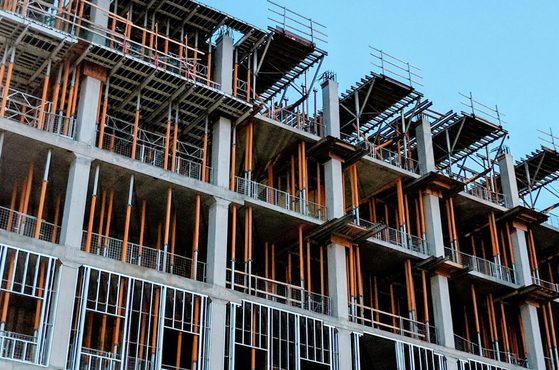Every contractor has been affected by an ‘employer delay event’. Yet when this pushes you into a period of adverse weather, are you entitled to claim for loss and expense?
Here, our Partner and experienced construction lawyer Jennie Jones offers an in-depth guide.
It's all about the evidence
If your construction project has been affected by an event that delays the completion date, your contract should specify which party is liable for the risk.
This will (typically) specify your entitlement to:
- an extension of time to the completion date as a result of the delay event
- loss and expense arising as a result of such delay.
However, if works are delayed as a result of adverse weather — the precise meaning of which ought to be defined in the contract — the contractor would ordinarily be entitled to an extension of time but not to loss and expense. This is because adverse weather is neither party’s fault — so the risk ought to be shared between the parties.
However, what if — but for the employer delay event — the contractor wouldn’t have been pushed into the period of adverse weather and would have completed on time?
The prospects of being able to successfully demonstrate an entitlement to loss and expense in these circumstances will depend on the facts of the case. If evidence is available to support the claim — and the specific contract doesn’t prevent such a claim from being made — then there is authority to support the position that a contractor’s claim would be upheld by a tribunal.
The contractual position
The approach to risk allocation for adverse weather depends on which form of contract is used.
The JCT form of contract
Under the JCT (2016) form, events causing delay to a project are categorised as either ‘relevant events’ or ‘relevant matters’. A ‘relevant event’ causes a delay to the completion date and is either caused by the employer or a ‘neutral’ event such as exceptionally adverse weather conditions.
Relevant events entitle the contractor to an extension of time to the completion date however, they don’t necessarily entitle the contractor to claim for the loss and expense that results from the extension of time.
On the other hand, a ‘relevant matter’ relates to a delay event that the employer is responsible for which materially affects the progress of the works. It’s these matters that entitle the contractor to claim for the loss and expense that has been incurred as a result of the delay.
Exceptionally adverse weather conditions are a relevant event but not a relevant matter under the JCT. This reflects the fact that the weather is out of both parties’ control and so unpredictable that any losses should lie where they fall.
The NEC form of contract
In contrast to the above, weather can constitute a compensation event under the NEC forms of contract if specific objective criteria are met. A recorded weather measurement must be found to occur less frequently than once every ten years (on average) when compared to historic weather records for the local area.
This may allow for the recovery of both time and money, but as such an objective approach is difficult to prove, it’s less likely that a claim for loss and expense would be granted.
The common law position
Most standard forms of contract allow for extensions to the completion date due to exceptionally adverse weather — though they rarely entitle the contractor to compensation for loss and expense if this occurs except where specific objective criteria are met (for instance under the NEC form).
However, if a contractor has been pushed into a period of adverse weather as a result of an employer impediment and is unable to undertake its work, is it entitled to claim its loss and expense?
Paragraph 8-073 of Keating on Construction Contracts states:
“…if as a result of an employer default progress has been delayed, a contractor may be entitled to compensation for the disruptive effect of the weather, irrespective of whether it is exceptionally adverse, if the delaying event caused the work to be carried out at a different period of time when the weather conditions were materially different from those anticipated at the time of contract execution by, for example, working in winter rather than in summer.” (emphasis added).
In EH Cardy & Son Ltd v Taylor and Paul Roberts and Associates [1995] 38 Con. L.R. 79, HH Judge Bowsher QC (as then) stated that it may be possible to establish a claim for loss and expense for weather on the basis that an employer delay event pushed tasks that should have been carried out in one set of weather conditions into another set of weather conditions.
The fact that the weather may have been foreseeable was irrelevant — the aim was to attempt to avoid the weather ever becoming an issue by completing a certain task before it hit.
The Judge observed that:
“If the design had been done properly in the first place, the work would not have gone into the period of inclement weather, nor would there have been any intervention of a Christmas break. The delay due to inclement weather, Christmas break, and redrawing were all rests of the original bad design of the third party”.
The ruling in EH Cardy has been supported by judgments from other common law jurisdictions, such as SKK (S) Pte Ltd v Management Corporation Strata Title Plan No 1666 [2011] SGHC 215.
In the SKK case, the Judge noted that:
“Painting works in Singapore would invariably be subject to the vagaries of the weather… the original completion date of the contract was 5 December 2008 before the full onset of the seasonal rainy weather in December. Had it not been for the defendant’s conduct which resulted in completion being delayed by five months to May 2009, the Plaintiff would have completed the Works on time or ahead of schedule.”
Law from outside the jurisdiction isn’t binding but is persuasive. Both of these cases establish that a claim for loss and expense may be successful if it can be proven that the employer default caused the work to be carried out at a period of time when the weather conditions were materially different from those anticipated when the contract was drawn up — for example, working in winter rather than in summer.
Five criteria to prove a loss and expense claim in these circumstances
The common law position provides a useful starting point for establishing entitlement in these circumstances. However, such claims will require sufficient evidence and can be difficult to prove.
Five criteria must be met to successfully prove a claim:
- The contract doesn’t prevent a claim in these circumstances.
- No delay occurred at the fault of the contractor.
- The employer delay event pushed the contractor into a period of weather that is ‘materially different’ to the weather that the work was expected to have been carried out in.
- Delay notices are issued on time and in the prescribed manner.
- The task was weather-dependent and all parties were aware of that.
Let’s take a closer look at each point.
1.The contract
First, the contractor would need to establish if there was anything in the contract that would prevent it from claiming loss and expense in such circumstances.
Construction projects often involve a number of weather-dependent activities, such as those requiring operatives to work at height. It’s therefore sensible to deal with this point at the outset of a project when the contract is being drafted to minimise the risk of ambiguity or disagreement in future.
2. Who caused the delay?
When faced with a claim for an extension of time and loss and expense, an employer will often try to argue that the contractor caused the delay. To defend against this, it’s crucial to keep records of all events that occur on the project and demonstrate that the contractor attempted to mitigate delays wherever possible.
Record keeping could include dated photographs and videos recording progress, progress reports, progress meeting minutes, site diaries and timelines showing when the work was due to be completed by the contractor and when the employer delay event(s) occurred.
In an adjudication, a delay analysis expert would usually be engaged to work with the legal team and the contractor to carry out a retrospective reconstruction of events (almost day by day).
3. Evidence of ‘materially different’ weather
The contractor would then need to prove that it was pushed into a ‘materially different’ period of weather than expected.
There are a number of ways to do this:
- Keep comprehensive records of weather conditions, including any impact they’re having on specific works — for example, if it’s no longer safe to carry out an activity — and record witness testimony of decision-making processes.
- Collate evidence of the weather conditions through site photographs and video footage.
- Assess Met Office weather data between the two periods of weather.
- Draw on expert opinion where needed to corroborate any decisions taken.
4. Demonstrate that an activity is weather-dependent
The contractor will need to demonstrate that the nature of the task was weather-dependent and that all parties were aware — or reasonably ought to have been aware — of that fact.
Again, at the time of the event, records should be kept of the contractor’s decision-making process around why work can’t be carried out safely due to the weather. This could reference HSE guidance on, for instance, working at height in high winds.
5. Issue delay notices promptly
It’s crucial to issue delay notices promptly and in compliance with the contract. The contractor must provide specific details of the delay, including the cause.
Pay particular attention to any conditions precedent within the contract detailing entitlement to additional time and money.
Talk to us
Our property and construction team regularly advises clients on disputed accounts for both standard and bespoke construction contracts.



